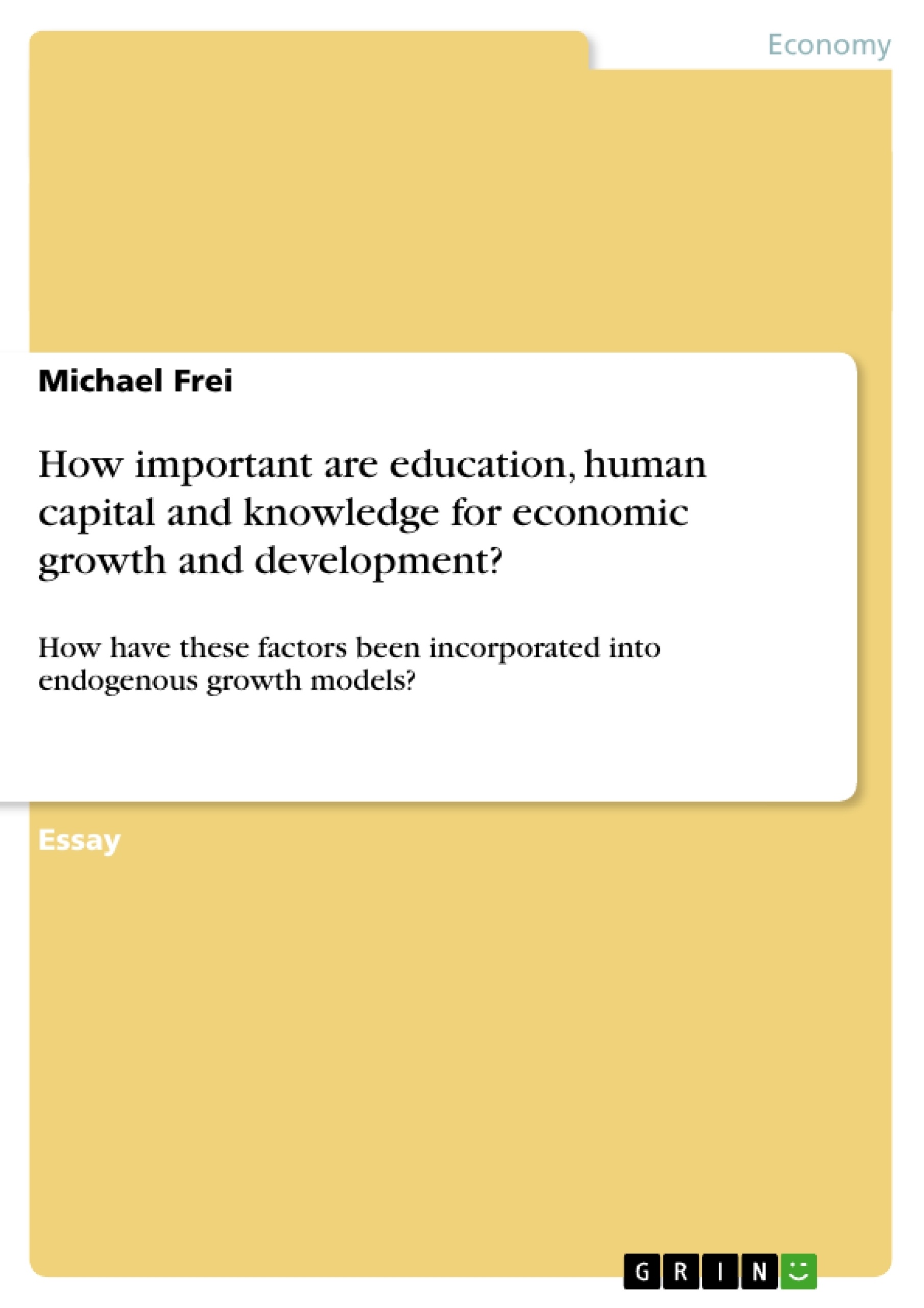In his speech at the Inaugural Convention of the African Federation of Human Resource Management Association in Botswana, Professor David Abulai (2008) stated that quality and quantity of human capital is becoming increasingly evident for the economic development of nations in today’s knowledge era. In fact the world of today is influenced by steady technological and scientific progress; by means of these new developments the socio-economic conditions in which people live are increasingly improving. Nevertheless a big part of the world is still lagging behind and social and economic distinctions still exist and developing countries are trying to catch up.
Professor Abulai (2008) argued that the key to this catching up in development is the population itself, which has to be educated, healthy and qualified in order to deal with new scientific and technological inventions and to exploit this new opportunities in the best possible way. The aim of this paper will be in the first part to analyze the impact of education, human capital and knowledge for economic growth and development.
In the second part of this paper the incorporation of human capital into endogenous growth models will be examined, focusing on the two main branches of growth analysis pioneered by Romer (1990) and Lucas (1988).
Inhaltsverzeichnis (Table of Contents)
- Introduction
- The effect on growth
- Incorporation into endogenous growth models
Zielsetzung und Themenschwerpunkte (Objectives and Key Themes)
This paper aims to analyze the impact of education, human capital, and knowledge on economic growth and development. It examines the incorporation of human capital into endogenous growth models, focusing on the Lucas (1988) and Romer (1990) models.
- The role of education, human capital, and knowledge in economic growth and development
- The measurement and interpretation of human capital in empirical studies
- The incorporation of human capital into endogenous growth models
- The contrasting theories of Lucas and Romer regarding human capital and its impact on growth
- Empirical evidence and applications of endogenous growth models in different countries
Zusammenfassung der Kapitel (Chapter Summaries)
The first chapter introduces the significance of human capital for economic development in the context of today's knowledge era. It highlights the importance of education, health, and skills in leveraging technological advancements for economic growth, particularly in developing countries.
The second chapter explores the effect of human capital on economic growth. It discusses different indicators for measuring human capital, including literacy rates and educational attainment. The chapter examines empirical studies on the relationship between human capital and economic growth, highlighting the significance of female participation in the labor market and the need for qualitative measures of human capital.
The third chapter focuses on the incorporation of human capital into endogenous growth models. It contrasts the Lucas (1988) and Romer (1990) models, emphasizing the differing perspectives on human capital as a factor of production versus a driver of technological advancement. The chapter then presents empirical evidence from different countries, illustrating the applicability of the Lucasian and Romarian models in explaining economic growth.
Schlüsselwörter (Keywords)
This paper focuses on the central themes of education, human capital, knowledge, economic growth, development, endogenous growth models, Lucas model, Romer model, technological advancement, empirical studies, and literacy rates.
- Arbeit zitieren
- Michael Frei (Autor:in), 2009, How Important are Education, Human Capital and Knowledge for Economic Growth and Development?, München, GRIN Verlag, https://www.grin.com/document/230774



